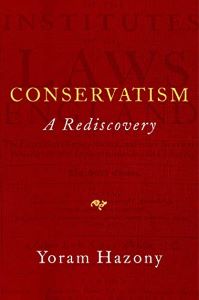I do not march in perfect step with my fellow conservative travelers on many topics. One of these is hate speech. Many of my friends dismiss the concept of hate speech as nothing more than a left-wing invention used to justify laws that are then deployed to silence opposition to their agenda. Certainly, that happens, but as a member of a community that has historically been the target of mob-violence provoked by malignant speech, I can well understand the fear, and the desire to guard against it. That said, I remain an ardent opponent of hate speech laws, or any attempt by the government to regulate thought and speech.
Those who advocate for strong laws curtailing speech assume that exposure to hate must inevitably lead to bigotry and violence. I reject that premise entirely. How sad that supporters of hate speech laws have such low regard for their fellow citizens. Do they truly believe it inevitable that their friends and family, neighbours and colleagues will become violent bigots by simply being exposed to warped ideas?
What nonsense.
Populations do not become hateful and violent simply because they are exposed to vile speech or ideas – they become so in the absence of countervailing speech and ideas that clearly expose the malignancy for what it is. The real danger rests in empowering the government to restrict speech of any kind because although such laws might be applied to hate speech today, the same laws can be applied to restrict opposition to the government if it becomes the main purveyor of hate.
This, in fact, is the lesson of National Socialist Germany and the Nazi’s rise to power.
No decent person would defend the grotesque, anti-Jewish rhetoric propagated by Adolph Hitler and his followers, but it is a mistake to assume that these views played a significant role in their political success. Many German voters might well have supported the NSDAP (Hitler’s party) except for its infantile, “pro-Aryan”, anti-Jewish ideas, and no doubt many who did vote for it, did so in spite of them, believing that these ideas would come to nothing. Recall that the Nazi’s were never able to secure the support of a majority of Germans in free elections.
So why was Hitler and his party so successful (if you can use that term in reference to the Nazi party and its agenda) in marshalling the support of the German people and especially in indoctrinating German youth? They simply outlawed and punished criticism of their agenda and ideology, effectively preventing anyone – particularly those in their formative intellectual years – from being exposed to any other way of thinking.
In short, they outlawed free speech.
National Socialist Germany is not an example of what can happen when speech is unregulated – on the contrary, it is an example of what can happen when free speech is curtailed. Nor is it the only example. Around the world and throughout history, totalitarian governments have, without exception, consolidate and prolong their power by suppressing dissent and free speech. And without exception, their fall has been achieved through the effort of brave individuals who dared to think differently and express their views publicly.
Is freedom of speech risky? You bet it is.
But if we can be so easily indoctrinated into irrational hate, surely it is because we have lost our humanity and abandoned our obligation to treat our fellows with respect and dignity. The problem, then, is not the existence of foolish ideas or the absence of state control over foolish ideas. The problem is the erosion of personal standards of behaviour and commitment to at least a modicum of common sense and intellectual integrity.
The way to address this is not through government intervention – it is to rededicate ourselves to decency and the standards of behaviour that are indispensable to the function of a free society and are at the heart of our Judeo-Christian culture.
Dear Reader,
I don't charge for my content, but...
I do accept voluntary contributions from readers like you who appreciate insightful analysis and value intelligent debate. If you like what you are reading, please consider making a small one-time or monthly contribution by clicking here.


 Conservatism: A Rediscovery explains how Anglo-American conservatism became a distinctive alternative to divine-right monarchy, Puritan theocracy, and liberal revolution. After tracing the tradition from the Wars of the Roses to Burke and across the Atlantic to the American Federalists and Lincoln, Hazony describes the rise and fall of Enlightenment liberalism after World War II and the present-day debates between neoconservatives and national conservatives over how to respond to liberalism and the woke left.
Conservatism: A Rediscovery explains how Anglo-American conservatism became a distinctive alternative to divine-right monarchy, Puritan theocracy, and liberal revolution. After tracing the tradition from the Wars of the Roses to Burke and across the Atlantic to the American Federalists and Lincoln, Hazony describes the rise and fall of Enlightenment liberalism after World War II and the present-day debates between neoconservatives and national conservatives over how to respond to liberalism and the woke left.
